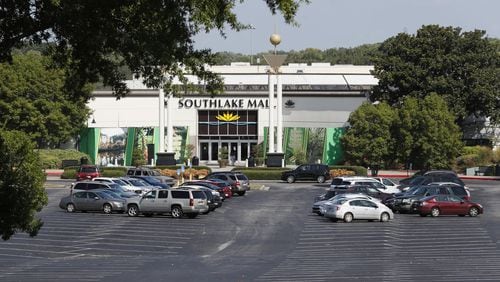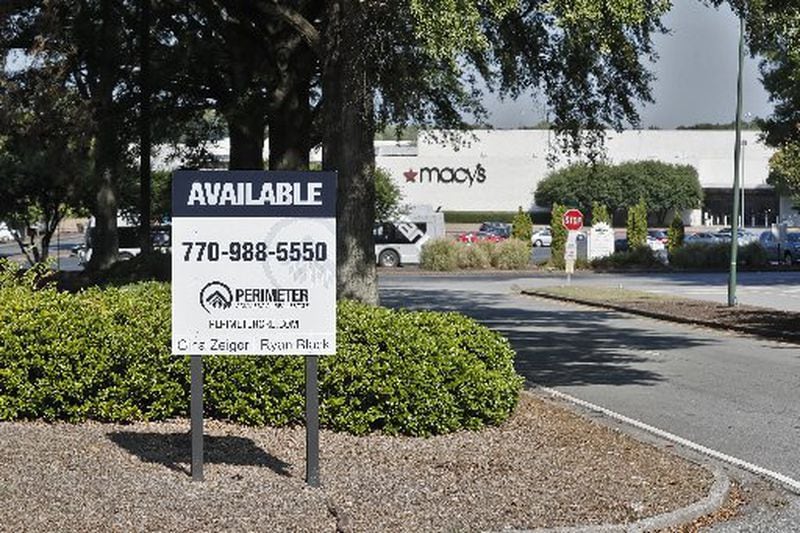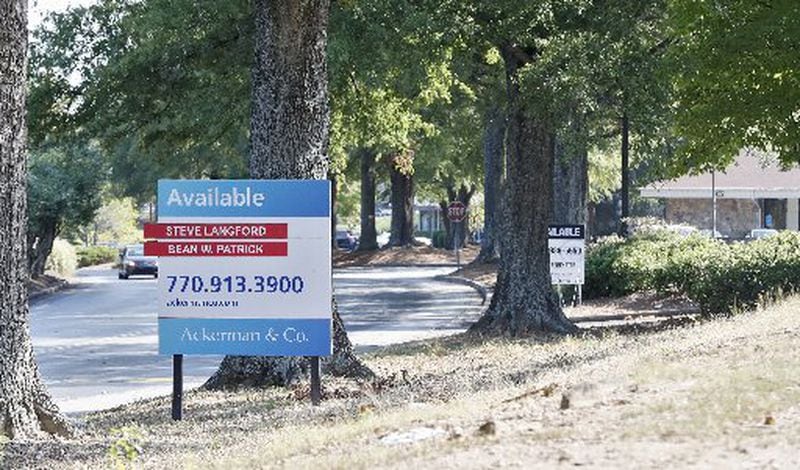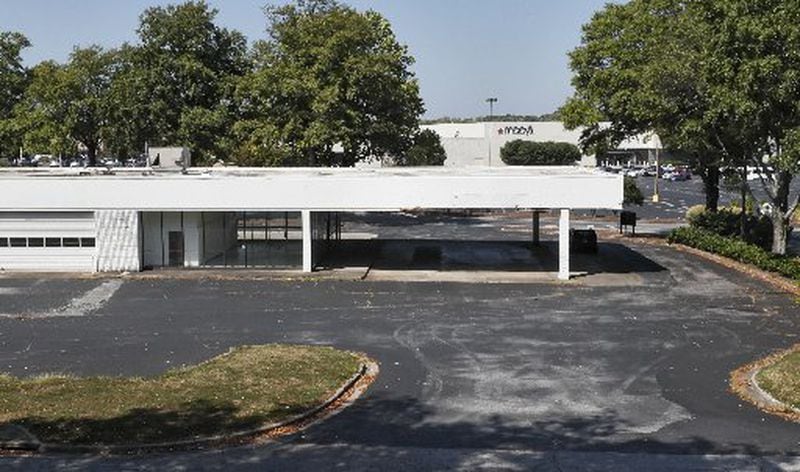For years, Omari Lamar had to leave Clayton County if he wanted to get a cup of coffee from Starbucks.
And that would have bothered him, if it wasn’t so typical of the challenges Clayton residents face when it comes to shopping and dining.
If Lamar wanted to shop at Target, Kohl’s or Old Navy, he’d have to travel outside Clayton for them too. Special occasions require a road trip to Atlanta or nearby Fayette County for dinner at anything but a chain restaurant.
“I just learned to stop shopping at Target,” Lamar said.
Clayton is one of Georgia's biggest counties with almost 300,000 people, a mall and the world's busiest airport, yet it has struggled to attract the retail and restaurant diversity that is common in most of metro Atlanta, experts and residents say. And while there are plenty of fast food restaurants, dollar stores and chain restaurants, Clayton lacks stores that would make the county a residential or visitor destination.
That could have far reaching consequences, experts say, because restaurants and retail are about quality of life and play a role in building destination appeal, attracting home buyers and creating jobs.
They also can impact the millions in federal funds Clayton is seeking to expand commuter rail south from downtown Atlanta. Those funds largely hinge on Clayton's ability to demonstrate that the investment in transit is warranted by residential and commercial development around commuter stops.
“What Clayton wants to do is help residents feel comfortable staying and spending money in their community as opposed to traveling to some of the more dense places in Atlanta to do their shopping and their dining,” Kennesaw State University economist Roger Tutterow said.
That’s easier said than done, according to Jonathan Neville, retail practice leader and partner in the Atlanta office of Arnall Golden Gregory.
Neville said he suspects Clayton is not hitting the right targets — foot traffic numbers, average household income, educational attainment and age of customers — that some retail and restaurant operators expect before opening new locations.
`Which statistic are you using?'
Only 19 percent of Clayton residents have a bachelor’s degree or higher, according to Iryna Hayduk, an assistant professor of economics at Clayton State. That compares unfavorably to 29.4 percent of Georgians who are college educated.
And about 16 percent of Clayton residents are impoverished, according to 2017 U.S. Census Bureau figures.
“The reason Clayton County is not being chosen, frankly, is because a lot of these data machines are not putting Clayton at the top of the retailers’ lists,” Neville said.
Khalfani Stephens, executive director at Clayton County Development Authority, has another theory. He said much of the data on Clayton County puts residents at the low end of metro Atlanta’s purchasing power scale. But Stephens said the reality is that the average Clayton worker makes more than $50,000 annually, which is well within the range needed to attract most restaurant and retail businesses.
“We have to do a better job of saying, ‘Hey, we know that you’re using this metric or that you have access to this data, but here is other data,’” Stephens said. “So it becomes a matter of: Which statistic are you using to make your decision?”
Making choices
Deborah Sykes lived in Clayton for 11 years before moving to neighboring Henry County in 2015, in part because of the lack of retail and dining amenities.
“Clayton County is not even a thought when I think of places to go” for a special night out, Sykes said during a recent visit to Clayton. “When I lived here, everything I did was in the city.”
The issue has played out in interesting ways.
Clayton County commissioners expressed frustration in July over a proposal to build a multi-pump gas station at the intersection of Webb Road and Highway 85 in Riverdale, which already has multiple gas stations.
After a back-and-forth, a representative for the gas station owner agreed to add a free-standing, sit-down restaurant to the proposal. The project was approved.
“We really don’t need anymore gas stations, but if we can get the restaurant with this and its along a state road, I believe we can retain some dollars in the county,” said Commissioner Felicia Franklin Warner, who added that the closest eatery in the area is over the county line into Fayette County.
“We need restaurants.”
Stephens, the Clayton development leader, said he understands the frustration. He agrees that Clayton does not have the diversity that some may be seeking, and said that the development authority is performing a market analysis to better understand the county's needs.
But, Stephens said retail in the county is doing better than many people think. He cautioned against painting Clayton as a retail wasteland.
Many of the chains at Southlake Mall are among the top revenue generators for their parent companies, he said. The stores that housed Target and Kohl's have been replaced with new tenants, and Starbucks returned to Clayton this summer with a free-standing store on Tara Boulevard, almost a decade after closing its Lovejoy location.
Other chains that metro Atlantans consider staples have stores in the community, including Walmart, Publix, Best Buy, Red Lobster and Olive Garden.
Clayton’s challenge, Stephens said, is perception: While its’ unemployment rate is at a low 4.9 percent, it’s the highest in metro Atlanta and that carries with it a bias that the county can’t afford the basics.
“I call it the non-inner city inner city,” he said. “We are obviously not geographically in the inner city of a city, but we have all the stigma attached to one.”
And it’s not that Clayton hasn’t made a run at upping its dining and retail game.
A decade ago Morrow leaders developed Olde Town Morrow, a mixed-use development across from Southlake. It was supposed to be a walkable destination akin to Atlantic Station, but closed in 2010 after suffering from code violations, accusations of mismanagement and poor visitor reception.
New hope
Over the last few years, Jonesboro has taken steps to fill the void. Since 2015, the Clayton city of 4,800 has constructed a downtown park to give the community a gathering point for outdoor concerts, food trucks and recreation.
The city also painted murals on brick walls along Main Street, demolished blighted buildings on historic Broad Street and helped open the Fig Tree Cafe, a coffee shop to pull in visitors looking for unique dining.
But it’s latest move could be its most ambitious yet — it is planning to be home to the second location of Atlanta’s popular Slutty Vegan restaurant.
“We are doing pretty good,” Wendell Webb, general manager of the Fig Tree, said of business. “But having more restaurants downtown will make our business even better.”
Georgia Restaurant Association Executive Director Karen Bremer said Clayton could follow the lead set by Hartsfield-Jackson International Airport several years ago. The airport, unsatisfied with its dining and retail mix, underwent an extensive re-calibration that resulted in the introduction of chef-driven restaurants and top brands added to its product mix.
Some restaurants, such as Envegan, a Morrow eatery, are using Clayton as their home base from which to expand. Hoang Nguyen, Envegan’s owner, said Clayton is a good place for dining establishments to get their sea legs because of the low cost of rental space.
“If we can make this work in Clayton, it can work anywhere,” he said.
About the Author









